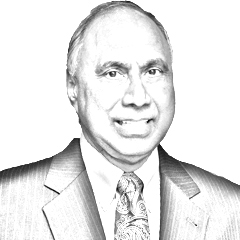
![]()
The Pakistan Tehreek-e-Insaf (PTI) government has come to promising to focus on the country’s human resources to develop a ‘new’ Pakistan. Because women constitute almost half of the Pakistani population, their development is pivotal to Pakistan being able to achieve its true potential as a nation-state. The importance of this empowerment is demonstrated by the fact that a 2016 International Monetary Fund paper estimates that closing the gender gapin economic participation could boost GDP in Pakistan by up to 30 percent.
No country in the world has achieved significant growth and prosperity without empowering and engaging its women. Pakistan is light years away from making this happen.
According to the World Bank, Pakistan, is currently using only 22 percent of its female workforce. The country is ranked 143 in the gender equality index of the World Economic Forum. It is ranked the lowest in the South Asian region in the Global Gender Gap Index 2017, with neighbouring Bangladesh ranking at an impressive 47 and India at 108.
There are many reasons for Pakistan’s dismal showing in terms of gender equality.
The lack of education, however, is the number one culprit.
The latest Economic Survey Report from the Pakistani government reports that only 48 out of 100 Pakistani women can read and write. Some experts dispute that number, asserting that the actual female literacy rate is lower than 30 percent.
Whatever the actual figures may be, Pakistan’s female literacy rate is far too low. This is because educating girls and women is a leveraged investment. It benefits the individual in many ways — including boosting confidence, improving decision-making ability, and enhancing critical thinking skills. It also has a large ripple effect by improving the health status of children in families and the economic development of communities.
The lack of education, unfortunately, is not the only problem in terms of the empowerment or advancement of women in Pakistan. In certain instances, women who do get a higher education are not allowed to work by their families. And, even those with professional degrees in fields such as medicine and engineering sometimes end up as housewives, not entering the workforce because their male partner will not allow them to work for “cultural reasons”. The good news is that Pakistan has made some progress in recent years in addressing these challenges and others related to women’s education and empowerment.
The government, with the help of UN bodies and the US government, has funded projects aimed at improving the literacy of girls in far flung areas in Northern Pakistan — including the former Federally Administered Tribal Areas. The Malala Fund (named after Malala Yousafzai, the young girl who fought for girl’s education, suffered a Taliban attack, and went on to receive the Nobel Peace Prize) has been established to help boost female literacy.
The government has encouraged women to enter the public sector and an increasing number of women are now joining Pakistan’s civil and military institutions. Women are also being encouraged to participate in political activity through a special quota in parliament. The Election Commission of Pakistan has enacted rules to ensure women are permitted to vote in rural and culturally backward areas of the country.
National and provincial assemblies have passed legislation to protect and empower women. And, over the past few years, an increasing number of women have joined the print and electronic media resulting in enhanced coverage of and awareness of women’s rights in Pakistani society.
This is a start. But, there is still a substantial amount of work that needs to be done for Pakistan to realise the full potential of its female population.
There are two actions that must be central to accomplishing this mission: Firstly, investing in the education of girls and women from early childhood education through higher education and professional development. Secondly, encouraging and facilitating female entrepreneurship. The first action is self-explanatory. The second action demands some elaboration.
Apart from regular academic education, women also need to be taught the hands on skills needed to run businesses. The education should be directed toward preparing women to enter all fields but it should place a special emphasis on areas in which there are too few female business owners, such as information technology, manufacturing, and engineering.
Numerous studies have found that women in emerging markets have much more difficulty in securing loans than men, and therefore must provide their own financing. That is why the World Bank launched a Women Entrepreneurs Finance Initiative (We-Fi) this year to provide venture capital support to help women start and grow businesses.
Unless they come from a family that has a business or have worked in a business, women entrepreneurs have seen no role models and have had no coaching on how to start, run and build a business. A mentoring program can fill that gap.
Given the foregoing, it would make sense for the public and private sectors in Pakistan to collaborate to develop a comprehensive and integrated three-pronged approach to harness the potential of its women entrepreneurs. The prongs for that collaboration should be: Educating and empowering women to become entrepreneurs, ensuring they have adequate financial resources to support their entrepreneurial ventures. This could be done through a micro financing initiative and connecting to or replicating We-Fi. The third is providing mentoring to promote success in their entrepreneurial endeavours.
At the fourth United Nations World Conference on Women, it was rightly stated: “Empowerment of women and gender equality are prerequisites for achieving political, social, economic, cultural, and environmental security among all peoples.”
By recognising this and embracing a women’s empowerment agenda, the PTI will empower the nation of Pakistan and transform the dream of a “new” Pakistan into a reality.
Frank F. Islam is an Entrepreneur, Civic Leader, and Thought Leader based in Washington DC. The views expressed here are personal
Published in Daily Times, September 14th 2018.